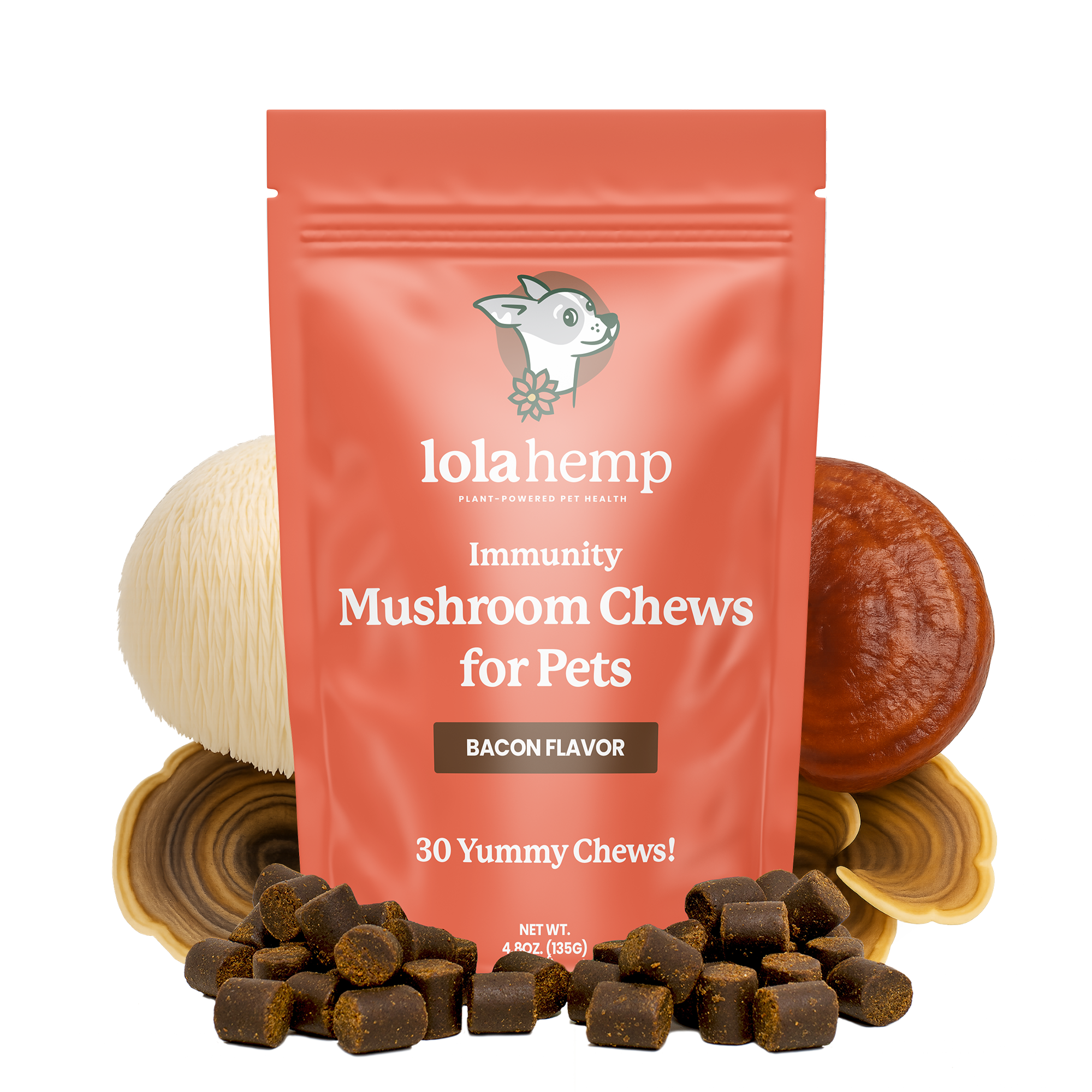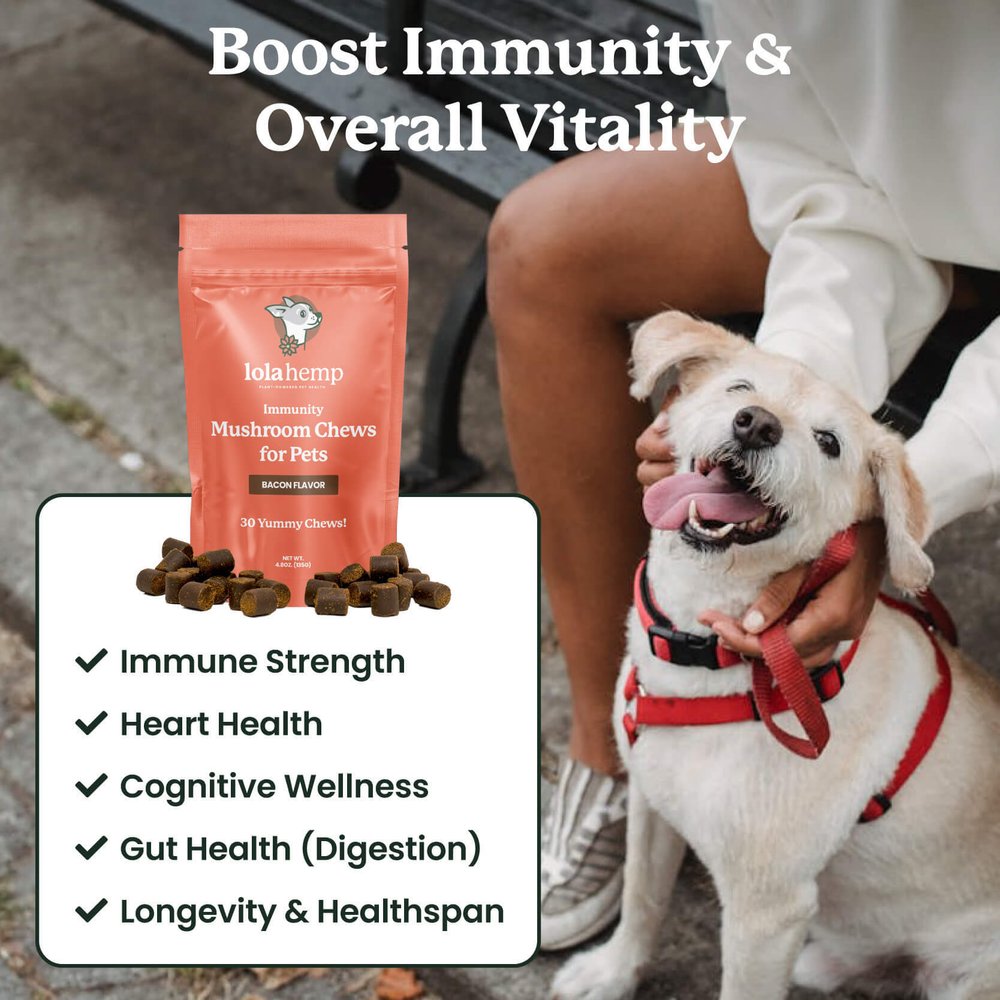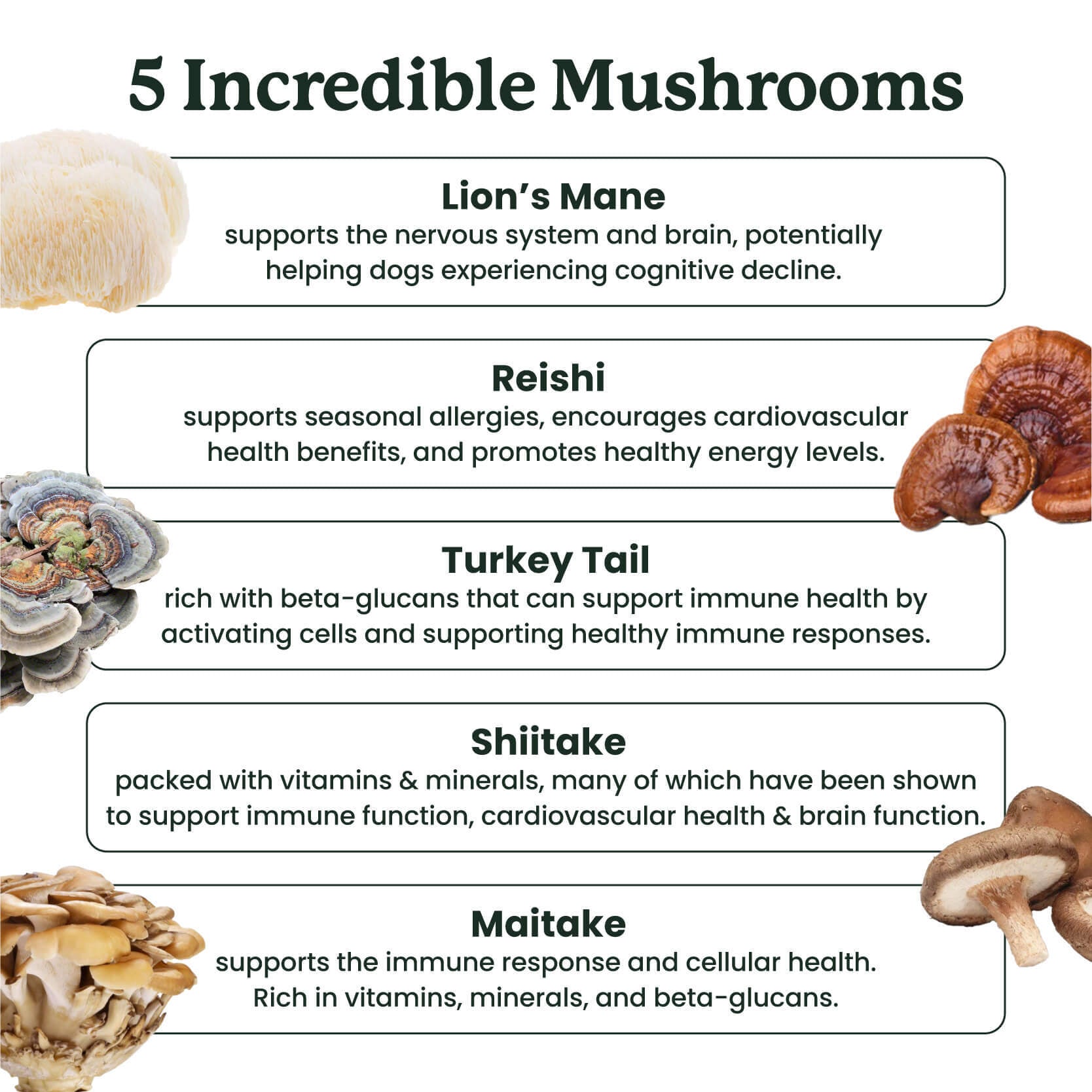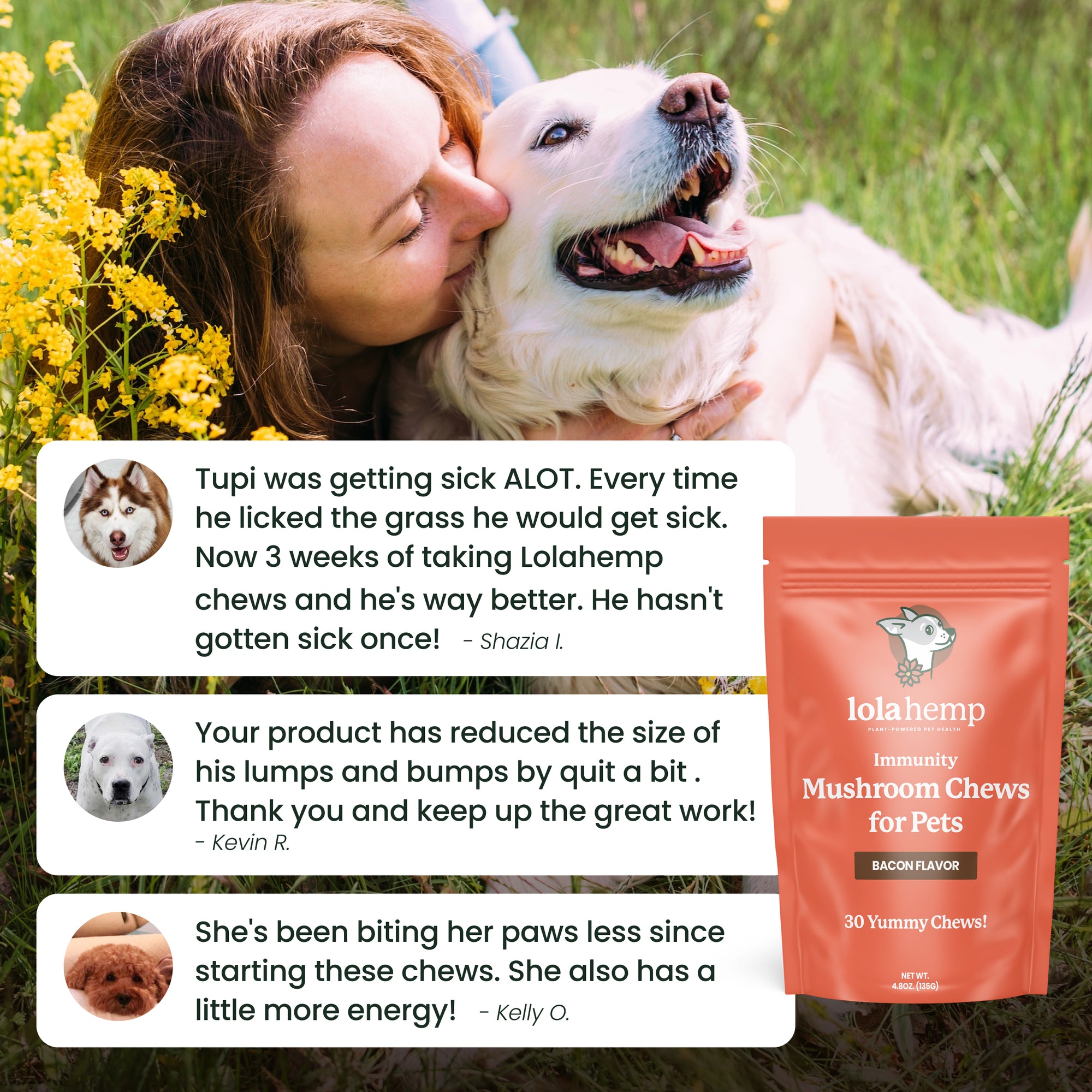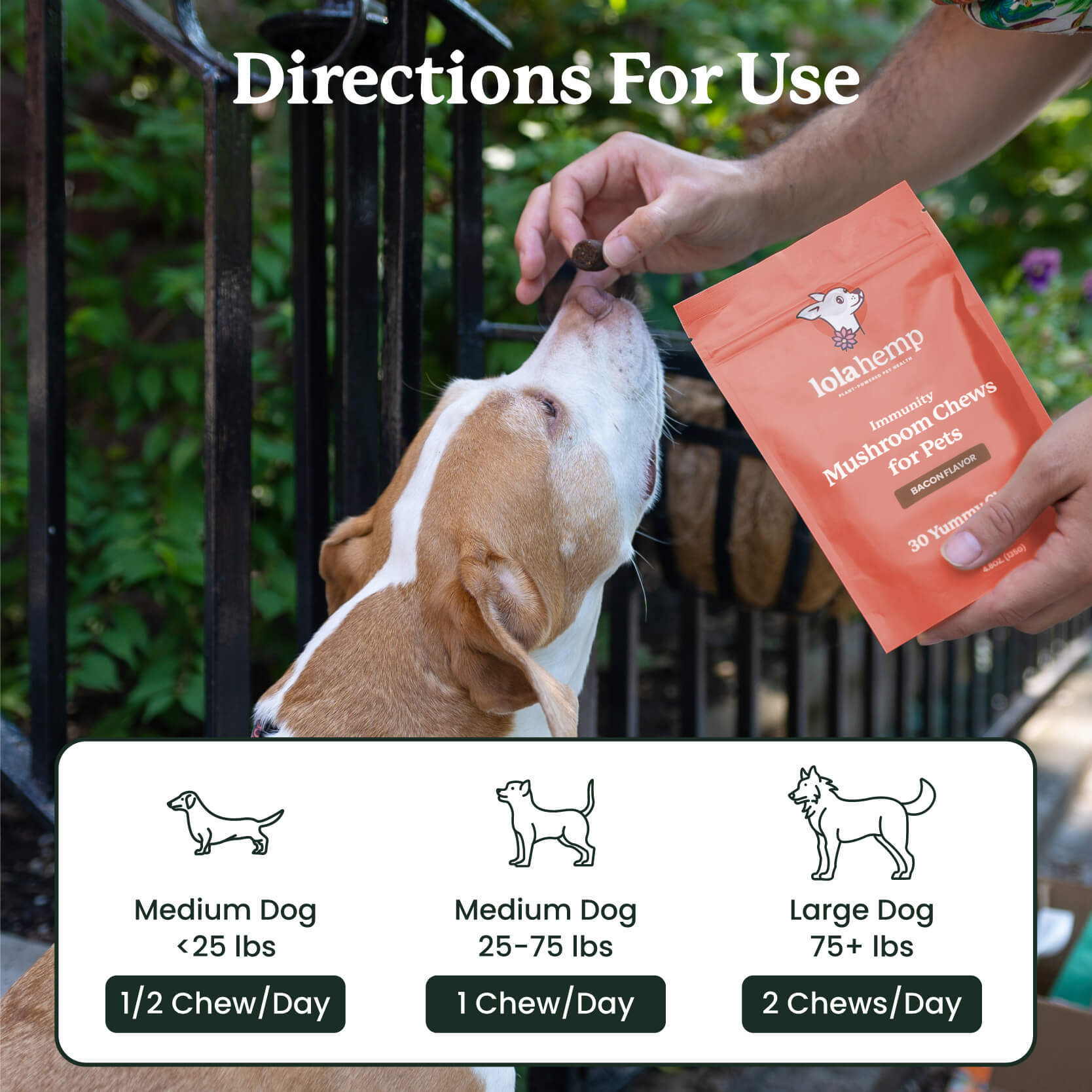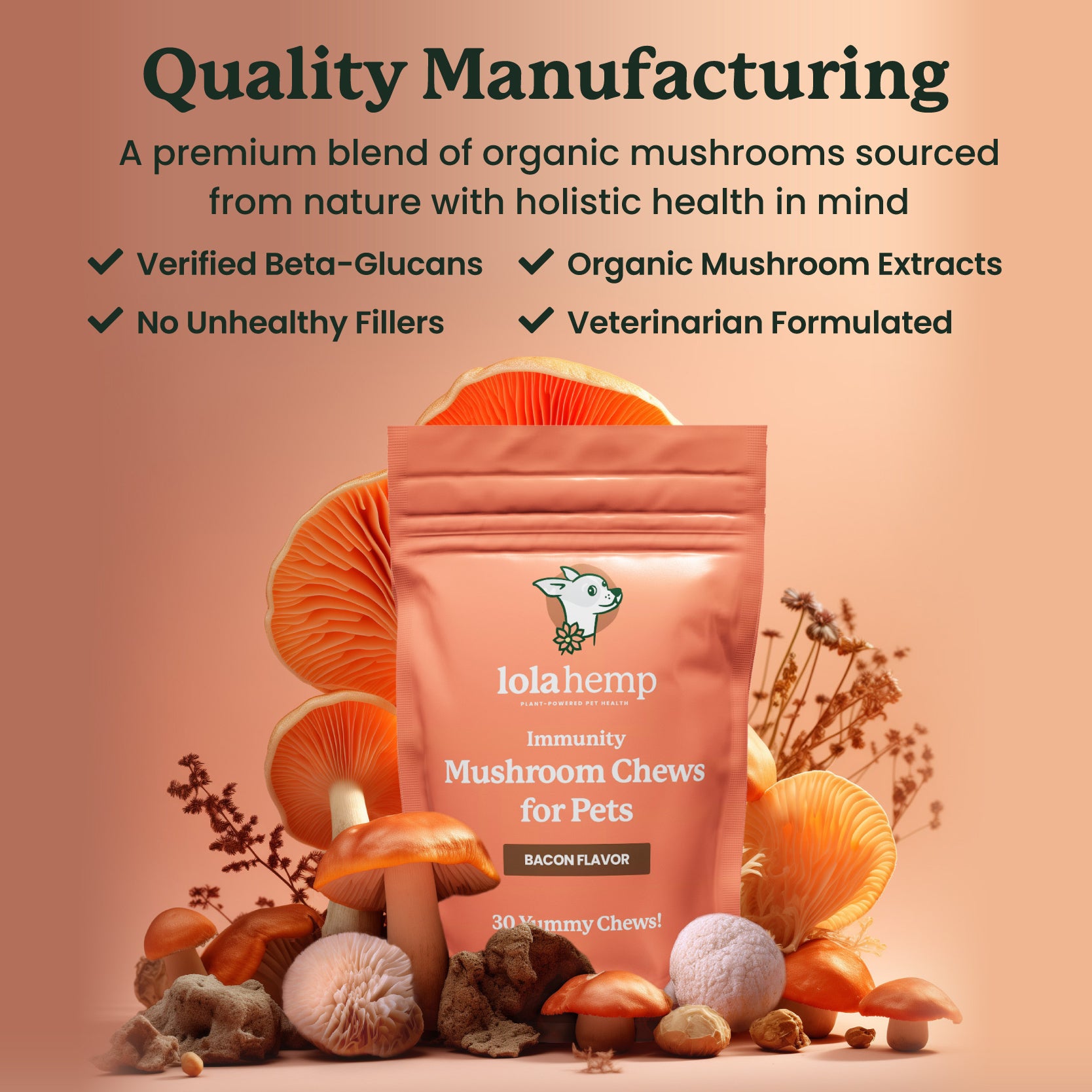The Lion's Mane mushroom, scientifically known as Hericium erinaceus, is a nutritional and medicinal mushroom, also called the pom pom mushroom, hedgehog mushroom, or monkey head mushroom.
These mushrooms are increasingly being recognized for their positive impact on canine health. Preliminary research indicates anti-inflammatory and antioxidant properties that may support a holistic approach to your dog’s overall health.
The Benefits of Lion's Mane Mushrooms for Dogs
- Immune system support: Beta-glucans in Lion’s Mane may help regulate immune responses, supporting defense against infection and promoting wellness.
- Cognitive function: Compounds like hericenones and erinacines may support nerve growth, helping senior dogs stay alert and mentally sharp.
- Heart health: Beta-glucans could help lower cholesterol and support cardiovascular function.
- Anti-inflammatory and antibacterial: Orcinol derivatives may help reduce inflammation and bacterial issues.
- Gut health: Lion’s Mane can help balance the microbiome and support digestion.
- Mood support: Studies suggest Lion’s Mane may have calming and mood-regulating effects.

What's in Lion's Mane Mushrooms?
Lion’s Mane mushrooms contain a mix of essential nutrients and active compounds beneficial to dogs and humans alike.
1. Essential Vitamins
Rich in B vitamins like B1, B2, B5, and B6, Lion’s Mane supports energy metabolism, nerve function, and neurotransmitter synthesis.
2. Minerals
Contains potassium for hydration and heart function, and copper for connective tissue and joint health.
3. Bioactive Compounds
These compounds provide unique functional benefits.
Polysaccharides
Provide sustained energy and support immune modulation.
Beta-glucans
Help strengthen and regulate immune function, activating immune cells and promoting resistance to disease.
Hericenones and Erinacines
These compounds stimulate nerve growth factor (NGF), supporting nerve health and cognitive performance.
Lion's Mane Supplements for Dogs
The best and safest way to introduce Lion’s Mane is through dog-formulated supplements. Never give dogs wild mushrooms or products made for humans.
Potential Risks and Side Effects
While generally safe, some dogs may show allergic reactions or mild stomach upset. Symptoms can include itching, swelling, nausea, or loose stool. If reactions occur, stop use and contact your veterinarian immediately for guidance.
Conclusion
The advantages of Lion's Mane mushrooms — from immune and brain support to anti-inflammatory and mood benefits — make them an appealing supplement for dogs. However, always consult your veterinarian before adding any new supplement to ensure it’s safe for your pet’s individual needs.
Frequently Asked Questions about Lion's Mane Mushrooms for Dogs
Is Lion's Mane safe for dogs?
Yes, when used in dog-formulated supplements, Lion’s Mane mushrooms are generally safe and well-tolerated. Avoid wild or human-made mushroom products, as they may contain unsafe additives.
What are the benefits of Lion's Mane for dogs?
Lion’s Mane may support immune function, brain health, digestion, mood, and inflammation balance, helping dogs maintain vitality as they age.
Can Lion's Mane help senior dogs?
Yes. Compounds like hericenones and erinacines in Lion’s Mane support nerve growth and cognitive function, which can help aging dogs stay mentally sharp and alert.
Are there side effects of Lion's Mane for dogs?
Most dogs tolerate Lion’s Mane well, but mild digestive upset or rare allergic reactions can occur. Start with small doses and monitor for changes in behavior or stool quality.
How should I give Lion's Mane to my dog?
Use only dog-safe supplements, following the manufacturer’s dosage guide or your vet’s advice. Consistent use provides the best results.

